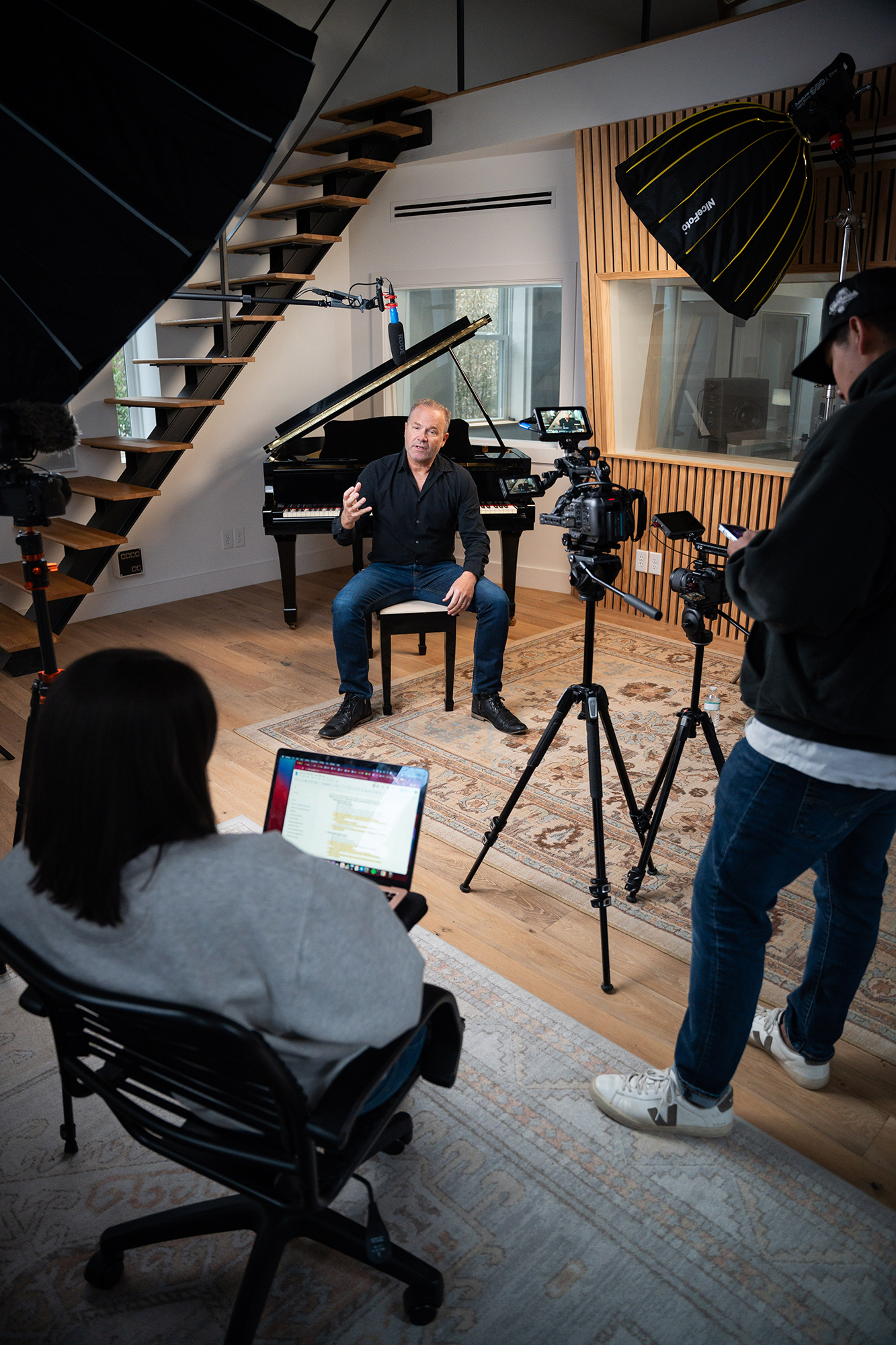
We believe music can change lives.
Music programs have shown to increase standardized test scores, reduce disciplinary infractions, and improve graduation and attendance rates (College Board, 2002), (Bowen et al, 2019), (NAMM Foundation, 2015). Students who play an instrument have improved performance in science, English, and math (Gouzouasis et Al, 2020). And guess what? There is even a movement to use music as a form of mental health therapy as it helps decrease anxiety levels (Shipman, 2016).
Even with all of those statistics, art and music continues to decline in lower income urban schools as music programs are often first to go during budget cuts.
In 2023, Tullman Family Office partnered with Grammy-nominated singer/songwriter/recording artist John Ondrasik from Five For Fighting to write a song with students from Farragut Career Academy in Chicago, Illinois. Ondrasik and a group of eight students participated in weekly after-school workshops and composed an original song, “Let Music Fill My World”.
Passionately expressing why music matters in their lives, the students wrote all of the verses in the song themselves. The students then had the opportunity to professionally record their song and create a music video with the help of seasoned industry music producers. Through the making of this song, they were able to fully fund a music teacher for the students at Farragut Career Academy.
We’re just getting started.


In the two decades since Five for Fighting’s first major single, “Superman (It’s Not Easy),” hit the stratosphere, Five For Fighting (aka John Ondrasik), has released six studio LPs, including the platinum-certified “America Town” and “The Battle for Everything;” and the top-10 charting “Two Lights,” along with an EP and live albums. A post 9-11 anthem, Ondrasik performed “Superman (It’s Not Easy),” at the 2001 Concert for New York, a benefit show at Madison Square Garden that honored first responders and the fallen about a month after the tragic September 11th attacks.
Ondrasik has penned major hits, including the chart-topping “100 Years,” “The Riddle,” “Chances,” “World,” and “Easy Tonight,” which have earned tens of millions of streams and placed him as a top-10 Hot Adult Contemporary artist for the 2000s. The reflective “100 Years” has joined “Superman (It’s Not Easy)” as part of the American Songbook and continues to stand the test of time. Five For Fighting’s music has also been featured in more than 350 films, television shows, and commercials, including the Oscar-winning “The Blind Side,” “Hawaii Five-O,” “The Sopranos,” and the CBS drama, “Code Black.”
Ondrasik says, “In speaking with philanthropist Cayley Tull about how we can best support music in the schools in inner-city Chicago, I thought of my mom, Anna Marie. Mom was a USC music grad and piano teacher. When LA Unified cut all music funding for schools in the 1970s, she volunteered at Van Gogh Elementary School and began putting on full musicals with the 5th and 6th grade classes.
The impact that my mother had on me, and my classmates resonates over 50 years later. Many students still keep in touch with my mom, and for the most, music has continued to be instrumental in their lives.
That is why I was so proud to collaborate with students at Farragut Academy in Chicago in writing “Let Music Fill my World.” Though the title was mine, the lyrics are the kids! That effort, due to the Tullman Foundation, now provides a full-time music teacher for three years at Farragut! Lives will be changed for the better.
As President of the Tullman Family Office, Cayley determines philanthropic, political, business, and social impact investments. She works directly with senior business leaders and political officials to develop creative, scalable solutions to tackle our nation’s most pervasive problems in the economic, education, public health, and security spaces.
Cayley is a problem solver dedicated to serving her country. She excels at developing inventive and tailored approaches to address complex tasks and connecting individuals with disparate perspectives toward a shared mission.
Cayley has over a decade of experience within the Federal Government where she served in operational and strategic roles in the United States and abroad. During this time, she served as a Program Manager responsible for the collaboration across several matrixed offices to develop operational frameworks and provide strategic guidance on a special foreign program.
Cayley’s primary professional expertise is Iran, and she has had unique exposure to various related geopolitical issues including U.S. sanctions against Iran, the Joint Comprehensive Plan of Action, and other security and economic issues. Cayley is proficient in several languages including Farsi and Spanish, which she has utilized to achieve mission success in challenging environments.
In early 2022, Cayley transitioned from her national security work into the private sector and assumed the role of President of the Tullman Family Office. As of September 2024, Cayley maintained a Reserve position in the national security space.
